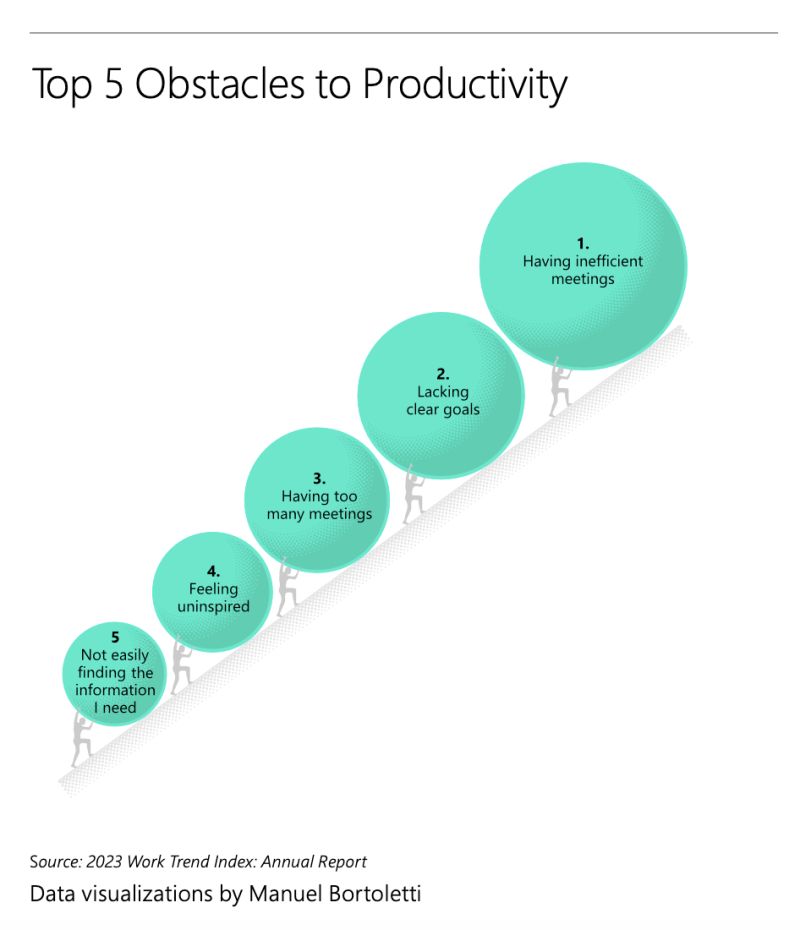Meetings are destroying your career.
Meetings are doing something to us beyond being a drain on our time and productivity.
They are a tax on our energy and mental health.
Here are 5 methods that I’ve found to work for me to navigate meetings…
1. Be selective: not every meeting requires your participation. It’s as simple as that.
2. Use voice messages (!): if people are looking for your input on a topic, email or Slack them. Or even better, send a voice message to the group or individual. Voice messages are better than text: you don’t have to type, plus they make the message more personal.
3. No agenda no meeting: if there’s no agenda agreed for the meeting or if it is not int he meeting invite, then I decline the meeting.
4. Cancel recurring meetings: most of these become obsolete after some cycles, don’t be afraid to cancel.
5. Use walks: if you absolutely have to attend a conference call, could you turn it into a solo walk or a team walk? Be outdoors and get into a better energy flow!
What are your methods to navigate meetings?
#corporatelife #meetings #efficiency #mentalhealth
Chart courtesy: Microsoft 2023 WTI Report

